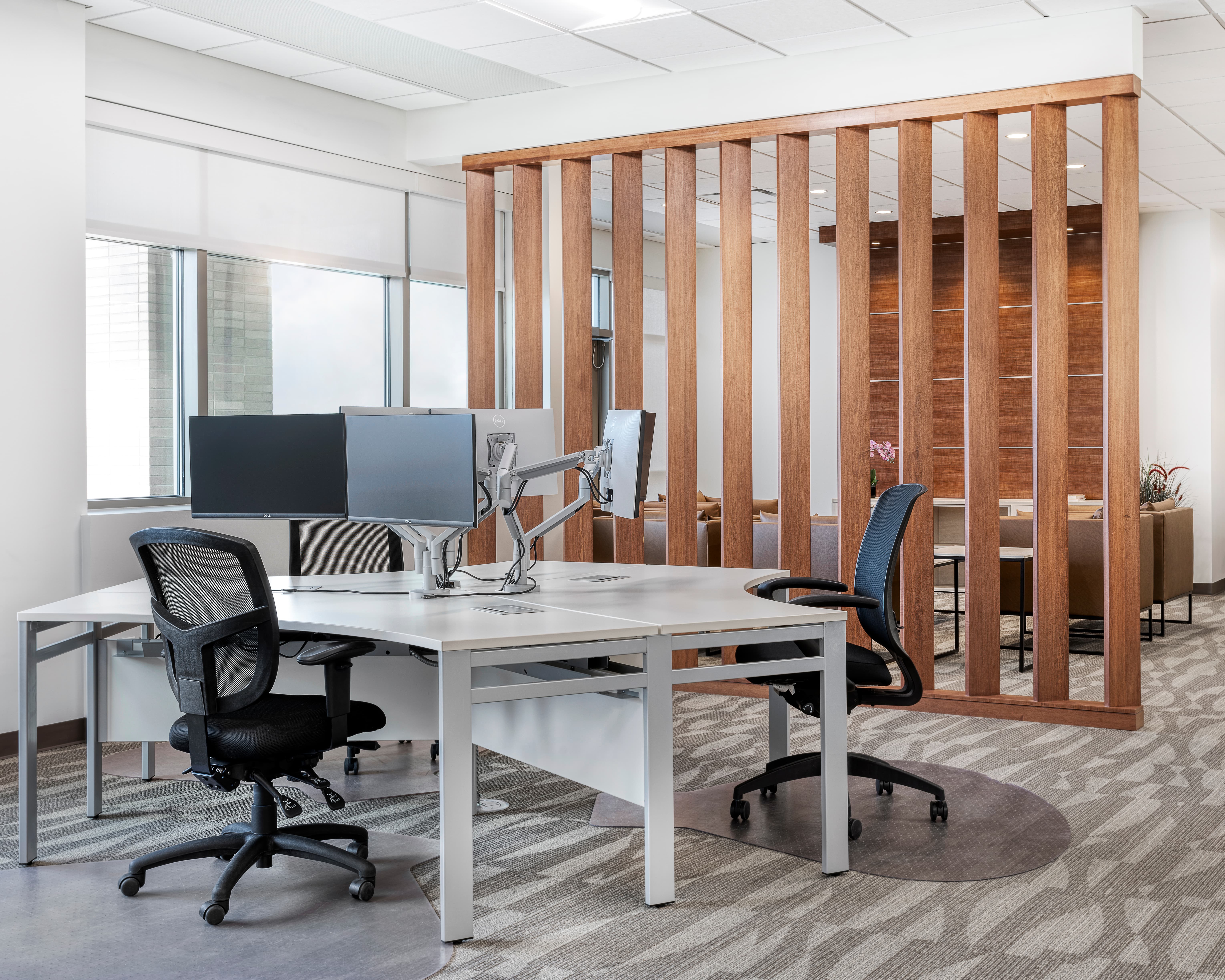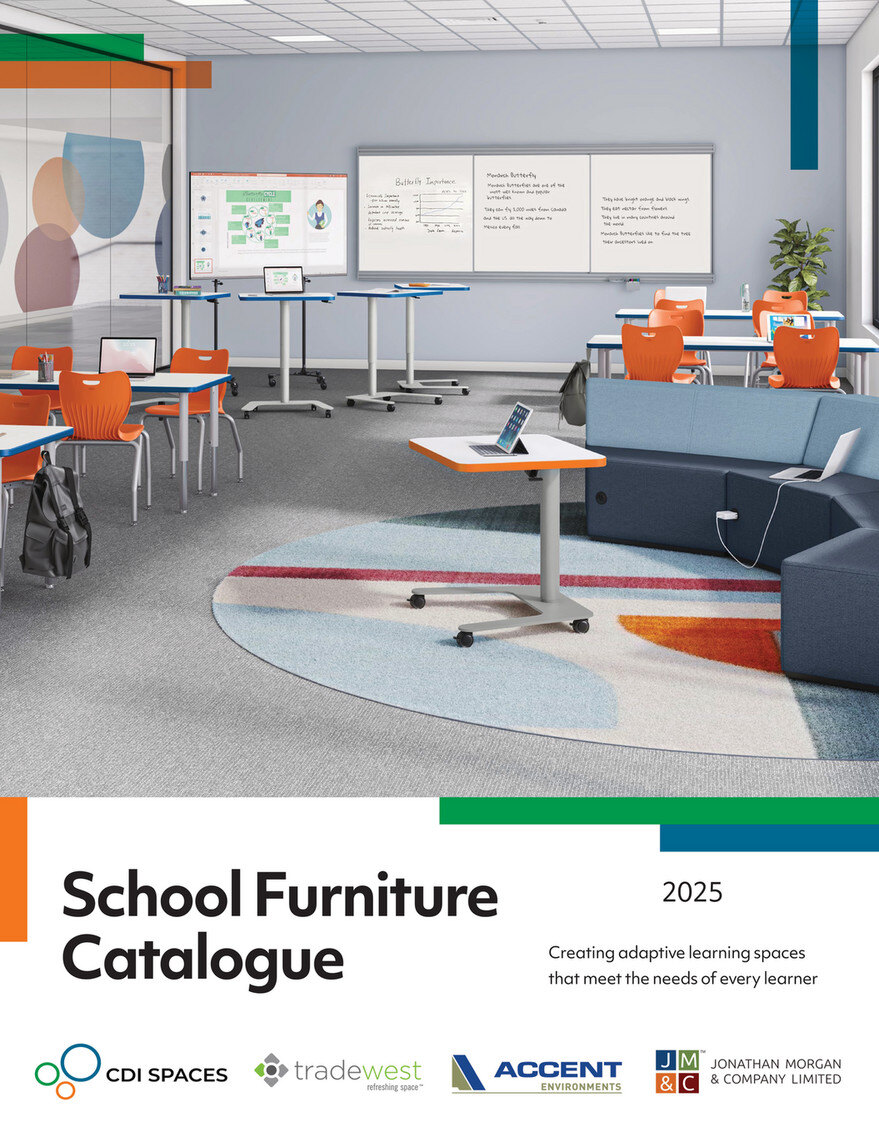Embracing Ergonomic and Modern Office Furniture for Today’s Hybrid Workspace
April 29, 2024

Rigid furniture is reaching retirement as the modern office environment morphs into a hybrid mecca. Transcending mere utility—innovative and ergonomic solutions are on the rise, from furniture to creative office fixtures, lighting, and more. For employees and employers alike, this shift has profound implications.
Employees in dynamic work environments that support flexible, hybrid work habits are often more productive, more satisfied with their work, and experience improved wellness. Employers who create these environments see higher engagement from their workers, increased retention, and a stronger and more vibrant workplace culture.
Ergonomic office furniture is transforming mundane workspaces into hubs of health and hybrid collaboration. In this article, we'll explore a range of office furniture solutions and their wide-reaching benefits.
The Importance of Ergonomics in the Office
Ergonomics is the study of how efficient people are in their environment. When it comes to workplaces, one of the significant factors in ergonomics is furniture and other key fixtures. In a workspace, these elements can either delight employees and increase productivity or, when they're less than ergonomic, they can create obstacles that challenge and frustrate employees.
Non-ergonomic environments can leave employees scrambling to find what they need to tackle their next task. Something as simple as inconveniently placed outlets, furniture that can't be moved, or poor lighting can quickly add minutes to work and meeting prep. Uncomfortable furniture and static workspace environments can also leave employees with aching backs, restless legs, and a distracting urge to move during the day.
Adopting ergonomic furniture means saving your employees time and energy—leaving them free to devote their full attention to the task at hand. With a variety of seating to utilize, tables that can adapt to suit various project needs, and private spaces for calls and deep work, employees can navigate their office with ease.
Modern Office Furniture Trends for Hybrid Workplaces
Flexible Workstations
The rise of hybrid work models has spurred the adoption of modular and reconfigurable furniture to accommodate shifting needs. Employees craving a bit more connection might find shared tables and booths especially attractive, while others enjoy the benefits of desks that transform from sitting to standing spaces at the touch of a button.
Collaborative Spaces
In-office café spaces are an evolution from the traditional cafeteria and just one of many collaborative spaces found in ergonomic offices. With a bit of ingenuity, at home workers could even enjoy a separate coffee-shop-like seating area set up for virtual team huddles. From this casual space that invites creative brainstorming sessions to re-configurable tables in the office and adaptive task-based areas, supporting teamwork with flexible furniture is just a few strategic decisions away.
Quiet Zones Furniture
Unique and sleek modern furniture can bring an element of inspiration to focus zones in any office. Consider bringing lower seating, comfortable armchairs, and couches into your space for more immersive work. Sound-dampening panels can create a softer ambiance, and direct task lighting can give individuals more control over the aesthetics of their quiet space.
Break Room Ergonomics
Mental and physical breaks from work throughout the day are vital to quality productivity as well as employee wellness and satisfaction. Plan furniture for your break room areas that ergonomically supports rest, relaxation, and posture recovery. Modular partitions, indoor gazebos, and even the addition of ottomans can increase the serenity of your break room space.
Technology Integration
With a hybrid workforce, technology integration into the workplace is paramount. Employees bringing their laptops and other technology to and from need easy-to-access charging stations, streamlined cable management solutions, and ample storage for their personal belongings, especially when seating is not assigned. Meeting rooms should also be equipped with mics, cameras, and presentation screens so meeting participants can connect with employees working from home.
Planning and Implementing Your Ergonomic Workspace
Consider planning dedicated zones in your office space to allow employees to immerse themselves in social or collaborative work, retreat into a quiet space for solo projects, and find complete privacy for calls and meetings. To determine the needs of your workforce, start by evaluating the spaces in your office that already get the most traffic. Then, assess the number of people who need fully private spaces for individual calls or group meetings at any given time.
In addition, consider facilitating employee input sessions to determine the types of personal workspaces your staff would find most useful. Do your employees appreciate assigned seating or enjoy the flexibility of hot seats? Are ergonomic office chairs favored over casual couches to work from? And for hybrid employees—what type of inclusive workspaces would make their home workspace conducive to their best work?
With this input in mind, you can incorporate just the right ergonomic furniture for any use. Most hybrid workplaces benefit from flexibility and adaptability. The options are endless, from movable phone booths to standing desks, charging stations, and even footrests for sitting employees.
As offices evolve, it will only become more apparent how ergonomic and adaptable office furniture is an essential investment in the health and productivity of today’s workforce. Consider meeting with a CDI design consultant to explore which innovative furniture solutions are ideally suited to the demands of your unique workforce.
Meet with a CDI design consultant to explore innovative furniture solutions for the hybrid work era.

